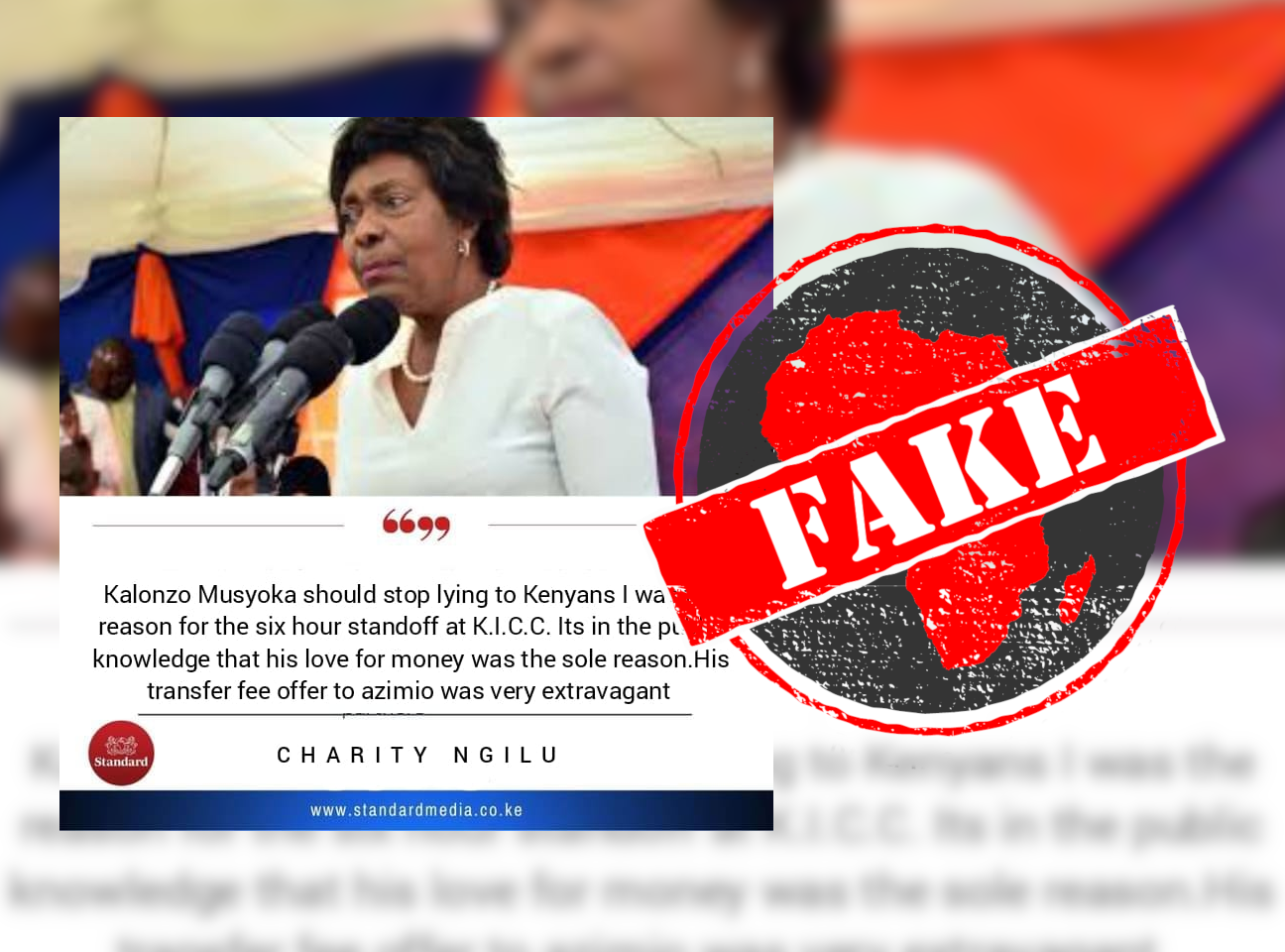A graphic circulating on Facebook quotes Kenyan governor Charity Ngilu as blaming former vice president Kalonzo Musyoka for a six-hour standoff in talks before Musyoka joined the Azimio la Umoja coalition on 12 March 2022.
“Kalonzo Musyoka should stop lying to Kenyans I was the reason for the six-hour standoff at K.I.C.C,” the quote reads.
“Its in the public knowledge that his love for money was the sole reason. His transfer fee offer to azimio was very extravagant.”
Azimio la Umoja, Kiswahili for “declaration of unity”, is a political coalition led by Kenyan opposition leader Raila Odinga. Odinga has the backing of current president Uhuru Kenyatta ahead of the 9 August elections.
KICC is the Kenyatta International Convention Centre in Nairobi, where the talks were held.
The graphic is branded with the logo and web address of the Standard Group Plc, a media house in Kenya that publishes the Standard newspaper.
Ngilu and Musyoka are political rivals. But did the governor really say this? And did the Standard produce the graphic quoting her? We checked.

‘Post not from Standard Digital’
We could not find any public record of Ngilu blaming Musyoka for the standoff.
On 14 March the Standard took to Twitter to dismiss the graphic as “FAKE”.
FAKE NEWS ALERT: Our attention has been drawn to this post circulating on social media. We would like to inform our audiences that the post is not from Standard Digital or any other platforms owned by the Standard Media Group pic.twitter.com/jMiYPK5KK1
— The Standard Digital (@StandardKenya) March 14, 2022
The tweet reads: “FAKE NEWS ALERT: Our attention has been drawn to this post circulating on social media. We would like to inform our audiences that the post is not from Standard Digital or any other platforms owned by the Standard Media Group.”
Ngilu reposted a screenshot of the media house’s response, saying: “Fake news alert!”
Republish our content for free
For publishers: what to do if your post is rated false
A fact-checker has rated your Facebook or Instagram post as “false”, “altered”, “partly false” or “missing context”. This could have serious consequences. What do you do?
Click on our guide for the steps you should follow.
Publishers guideAfrica Check teams up with Facebook
Africa Check is a partner in Meta's third-party fact-checking programme to help stop the spread of false information on social media.
The content we rate as “false” will be downgraded on Facebook and Instagram. This means fewer people will see it.
You can also help identify false information on Facebook. This guide explains how.





Add new comment